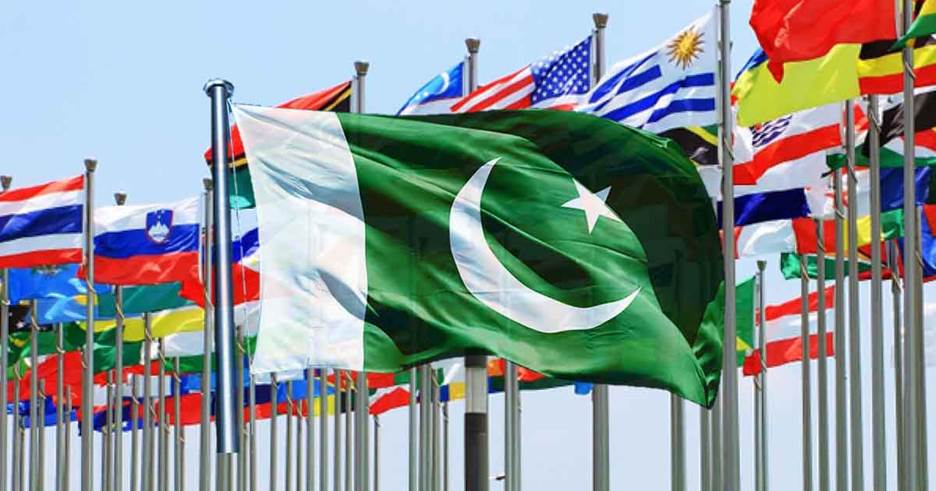
Global Village Space
Free or Dependent?
By Touqir Hussain
Georgetown University
US

Pakistan does have an independent foreign policy. It is not a protectorate or a colony much less a slave; it is a sovereign country free to have its own foreign policy. Pakistan did have a choice, and exercised it freely, sometimes well, sometimes badly.
Pakistan independently made a choice to have a foreign policy, especially since Ziaul Haq’s time, that fitted in with the country’s organizing idea, which prioritized security over development, the elite over the people, and ideology over progress. This idea was supported by a model of governance, civilian or military, in which institutions came to be seen as subservient to the centers of power and were undermined, weakening the state.
A weak state ends up with a dependent foreign policy serving others’ strategic purposes, sometimes even at the expense of its own interests, weakening itself further.
The services of Pakistan’s army, the country’s geopolitical location and attempts at Islamization made the country an attractive partner, for different reasons, to China, the US and Saudi Arabia that became its principal benefactors. Given the multiplicity and relative permanence of interests that bind China and Pakistan that relationship became strategic, serving us well. But the other two remained largely transactional, the plinth of mutual interests being small and shifting, and Pakistan’s services more important than the country itself, and useful only when needed.
A dependent foreign policy is restrictive and addictive, robbing the country of the freedom to find new allies. It is also a disincentive to developing one’s own national strength. It made Islamabad complacent that being geopolitically too important, a nuclear power too risky to fail, and its services too indispensable, Pakistan did not need to diversify its friends or develop its own strength. This made it vulnerable to exploitation.
The elites’ hold over national interests, geared to the pursuit of their personal interests, put the country at a disadvantage with big powers finding it less costly to satisfy the elites’ than Pakistan’s interests. Pakistan also benefited but lost more than it gained. Conspiracy theories or not, the people have now rejected this bargain.
In the light of national history of the past few decades, Pakistan’s establishment needs to do some serious soul-searching about the country’s place in the world. The latter faces new geopolitics, new rising powers, new regional alignments, new alliances, an increase in nontraditional threats and transnational challenges — and, at the same time, unforeseen opportunities.
National priorities globally have come to focus on the economy. To reap economic benefits, countries — while strengthening or loosening their traditional ties — are seeking new friendships and multiplying relationships.
Washington, too, may have realized that its policy to isolate China, create blocs and focus only on great power rivalry and confrontation has not worked. And that the strategic competition with Beijing has to be managed responsibly without armed conflict or economic warfare, as suggested by the recent Xi-Biden meeting .
French President Macron emphasized in a speech to business executives at the APEC summit in Bangkok that “we need a single global order”, a view echoed by German Chancellor Scholz separately. According to IMF managing director Kristalina Georgieva, “We are in a world that is going from one shock to another — pandemic, war, inflation, cost of living crisis. And if we add on top of it the fragmentation in the world economy, it would be throwing gasoline on a fire.”
In a changed strategy, the US may now be engaging with Pakistan as part of its broader interests in South Asia, that are geopolitical, regional and security related. Some interests will be served by India, some by Pakistan, and some by both like in the Indo-Pacific strategy. India is an ally in this strategy which Pakistan should not undermine.
Beijing too has red lines: that Islamabad’s engagement with Washington should not undermine China’s strategic competition with the US. Within the limits of these red lines each may want Pakistan to have relations with the other. It may help Pakistan’s economy and stability. Then the US and China also have a shared interest in averting a nuclear war in South Asia, fight against extremism, and stabilization of Afghanistan.
Pakistan for its part needs to rethink its national policies. If it remains internally weak it will continue to have a dependent foreign policy keeping the country weak, and not a good partner or an attractive market for foreign investors. But if Pakistan is strong, it will be more capable of “an independent foreign policy”, greater global engagement and enhanced national strength. ‘Haqiqi azadi’ really begins at home.
(The writer, a former ambassador, is adjunct professor Georgetown University and Visiting Senior Research Fellow National University of Singapore. Dawn)

